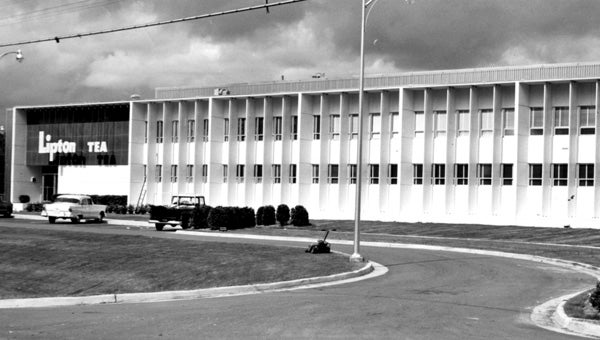Lipton has long history in Suffolk
Published 10:48 pm Monday, March 11, 2013

The Lipton tea plant is shown in this 1955 photo shortly after is opened. After 58 years, the company on Monday announced its intention to stay in Suffolk. (Courtesy of Suffolk-Nansemond Historical Society)
After 58 years in Suffolk, Lipton Tea has committed to an even longer relationship with the city after announcing a $96 million investment during an event Monday.
The plant was built in 1955, supply leader Billy Kelly said Monday. The company was started in 1893 as the Thomas J. Lipton Company by Sir Thomas Lipton, a Scotland-born entrepreneur. He aimed to provide tea, once a drink enjoyed only by the wealthy, at affordable prices.
The Suffolk site was chosen by Lipton himself.
“He chose well,” Kelly said, noting the site’s accessibility to the port, which was one factor in the packaging plant remaining in Suffolk.
Sue Woodward, a member of the Suffolk-Nansemond Historical Society, said part of the plant was built in an old Coca-Cola bottling building, which had been constructed in the 1940s. That building is the easternmost on the site.
“Teenagers used to have dances upstairs there,” she said.
When the plant opened, it was one of only two in the country that packaged teabags for Lipton, Woodward said. Now, it’s the only one.
The plant has kept roughly 300 employees for most of its history, Kelly said on Monday. But its output has grown significantly — more than 500 percent since it opened.
Kelly said many employees have been loyal to the company for decades. He said he believed good benefits, good treatment of the workforce and the chance to work for an iconic brand keeps employees around.
“When people come to work here, they want to stay,” he said.
Woodward said the plant employed a British tea-taster for many years, but he eventually gave the job up to an American woman whom he trained to fulfill the role.
The plant has had some momentous occasions in recent years, as well. In 2009, it became the first of Lipton’s facilities to become “zero-landfill,” which means it either recycles, composts or incinerates all waste generated at the facility, from employees’ lunch packaging to the remnants of the tea processing.
In 2010, the company won a Governor’s Environmental Excellence Award for the initiative.
Lipton is the world’s leading tea brand and is sold in more than 150 countries, according to the Lipton website.





